When used responsibly, credit cards are a fantastic way to earn travel rewards and unlock other incredible experiences.
Here are our recommendations for the best overall credit cards in Canada.
Best Overall Credit Cards
Best Travel Credit Card
- Earn 100,000 MR points upon spending $10,000 in the first three months
- Plus, earn 50,000 MR points upon spending $50,000 in the first year
- Plus, earn 30,000 MR points upon making a purchase in months 15–17 as a cardholder
- Earn 2x MR points on all dining and travel purchases
- Receive an annual $200 travel credit
- Receive an annual $200 dining credit
- Transfer MR points to Aeroplan and other frequent flyer programs for premium flights
- Unlimited airport lounge access for you and one guest at Priority Pass, Plaza Premium, Centurion, and other lounges
- Credits and rebates for daily expenses throughout the year with Amex Offers
- Bonus MR points for referring family and friends
- Annual fee: $799
When it comes to premium perks, the American Express Platinum Card can’t be beat. The card offers extremely strong benefits that make its high annual fee worthwhile.
The Platinum Card earns Membership Rewards points, the most flexible transferable rewards in Canada. You can get the best available welcome bonus by applying through a refer-a-friend link.
Otherwise, the card earns 2 MR points per dollar spent on dining and travel, and 1 MR point per dollar spent elsewhere.
Also, as Amex’s flagship product, the Platinum Card tends to receive the best rebates throughout the year. You’ll get some on other premium cards, and on lower-tier Amex cards, but Platinum cardholders can expect to get the cream of the crop.
As for travel perks, the Platinum Card reigns supreme over other top-tier credit cards. You’ll get unlimited visits to Priority Pass airport lounges for you and one guest, as well as Plaza Premium lounges and American Express Centurion Lounges for you, your spouse, and two children under the age of 21 or one travelling companion.
Looking at hotel status, you’ll get automatic Marriott Bonvoy Gold Elite status and Hilton Honors Gold status.
Finally, the Platinum Card includes best-in-class insurance, giving you peace of mind should anything go awry on your travels.
You might prefer the Business Platinum Card for similar perks with a different rewards structure on spending, or a mid-tier credit card if you’re just looking for occasional lounge access. But if you want the most wide-ranging benefits, the American Express Platinum Card is the total package.
Best Credit Card for Business Owners
- Earn 110,000 MR points upon spending $15,000 in the first three months
- Then, earn 60,000 MR points upon spending $90,000 in the first year
- Plus, earn 30,000 MR points upon making a purchase in months 15–17 as a cardholder
- And, earn 1.25x MR points on all purchases
- Also, receive a $200 annual travel credit
- Transfer MR points to Aeroplan and other frequent flyer programs for premium flights
- Unlimited airport lounge access for you and one guest at Priority Pass, Plaza Premium, Centurion, and other lounges
- Credits and rebates for business expenses throughout the year with Amex Offers
- Bonus MR points for referring family and friends
- Qualify for the card as a sole proprietor
- Annual fee: $799
The Business Platinum Card from American Express is the fastest way to use credit card rewards to supercharge your travel aspirations.
The card offers an incredible welcome bonus which can have incredible value when transferred to frequent flyer programs. American Express has transfer partners in each of the three major airline alliances, so you’ll be able to fly just about anywhere.
Specifically, Canadians can transfer MR points to Air Canada’s Aeroplan program. The best long-haul premium cabins on Air Canada’s partners can cost quite a few points, and cards with such a big welcome bonus are few and far between, so the Business Platinum Card is a great way to get you there more quickly.
Furthermore, if you can refer family, friends, or business associates to open their own rewards credit cards, the Business Platinum Card is the best card to get first. Every time you successfully refer a friend to apply for an American Express business credit card, you’ll receive an additional 20,000 MR points for yourself, plus your associate will get the best available welcome offer for them.
You’ll also get many of the same premium travel benefits as the personal Platinum Card, such as automatic Marriott Bonvoy Gold Elite status, access to Amex’s Fine Hotels and Resorts program, and unlimited Priority Pass airport lounge visits for yourself and a guest.
And the best part is that you don’t need to be a business owner in the traditional sense to qualify for the card. You can apply as a sole proprietor, using your own name as the business name. Unlike other banks, Amex is unlikely to request proof of your business operations, so individuals should have no trouble applying.
Best Cash Back Credit Card
- Earn a bonus 10% cash back on all purchases for your first 3 months (up to $2,000 in purchases)
- Then, earn 4% cash back on gas and groceries
- Then, earn 2% cash back on all other purchases
- Enjoy the exclusive benefits of being an American Express cardholder
- Bonus cash back for referring family and friends
- Annual fee: $120
The SimplyCash Preferred Card from American Express earns 2% cash back on all purchases. You can mix and match other cards with higher category rates, but this one stands alone for everything else.
Also, this card has a very reasonable annual fee of just $99. Compared to other premium cards which clock in at $120 or higher, you’ll be hard-pressed to find such a strong base earn rate at a better price.
This card is without a doubt a great choice, whether as a simple solution for a slim wallet, or as a supplement to a shrewd roster of cards with other specific strengths.
Best Credit Card for Daily Spending
- Earn up to a total of 15,000 MR points upon spending $750 in each of the first 12 months
- Earn 5x MR points on groceries, restaurants, bars, and food delivery
- Earn 3x MR points on eligible streaming services
- Earn 2x MR points on gas and transit purchases
- Transfer MR points to Aeroplan, Avios, Flying Blue, Marriott Bonvoy, and more
- Enjoy the exclusive benefits of being an American Express cardholder
- Bonus MR points for referring family and friends
- Monthly fee: $12.99
The American Express Cobalt Card is our choice for the best credit card in Canada for everyday expenses. It’s earned this accolade thanks to a combination of its high earn rate and the value of its rewards.
You’ll earn 5 MR points per dollar spent on food and drinks, including groceries, restaurants, bars, and food delivery services. For a spending category that makes up a large portion of the average Canadian’s budget, you definitely want to make sure you’re earning high rewards on those purchases.
You could simply cash out your points for statement credit, but you also have the option to transfer them airline or hotel partner programs. That flexibility sets the Cobalt Card apart from other high-earning cards.
Plus, as an American Express card, you’ll get some of the best ongoing benefits throughout the year, in the form of occasional Amex Offers.
Best Credit Card for Beginners
- Earn 10,000 Aeroplan points† upon first purchase†
- Plus, earn 15,000 Aeroplan points† upon spending $7,500 in the first 180 days of account opening†
- Plus, earn an additional 15,000 Aeroplan points† on renewal when you spend $12,000 within 12 months of account opening†
- Earn 1.5x Aeroplan points† on eligible gas, groceries, and Air Canada® purchases, including Air Canada Vacations®†
- Preferred Aeroplan pricing and free checked bag on Air Canada® flights†
- Minimum income: $60,000 personal or $100,000 household
- Annual fee: $139 (rebated for the first year)
- Offer available for applications approved on or after January 7, 2025.
High annual fees aren’t the only way to earn huge travel rewards. If you’re just getting your feet wet, you might want to start with a mid-tier option like the TD® Aeroplan® Visa Infinite* Card.
The card has a modest $139 annual fee,† and it’s easy to get started earning the welcome bonus with a reasonable minimumspending requirement. It’s a convenient choice as you begin to understand how you want to eventually use your travel rewards.
As for benefits, you’ll get preferred pricing on Air Canada flight redemptions, free checked bags, and insurance on Aeroplan award tickets when you pay the fees with the card.† Also, you don’t have to worry about your hard-earned points expiring as long as you remain a cardholder, so there’s no rush to figure it all out.†
Best Credit Card with No Annual Fee
- Earn 10,000 MR points upon spending $1,000 in the first three months
- Plus, earn 1x MR points on all purchases
- Transfer points to airlines or hotels
- Amex Offers and cardholder benefits
- Annual fee: $0
The American Express Green Card is our favourite credit card with no annual fee.
Uniquely among cards in its class, it earns transferable points in the form of Membership Rewards. When it comes to such a valuable points program, you won’t earn 1 point per dollar spent on any other no-fee credit card. In fact, this rate is competitive even with many premium credit cards.
In addition, you’ll get the benefits of being an Amex cardholder, such as American Express Experiences and Amex Offers.
For a free credit card, you couldn’t ask for much more.
Best Credit Card for Foreign Transactions
- Earn 35,000 Scene+ points upon spending $2,000 in the first three months
- Earn an additional 10,000 Scene+ points upon spending $40,000 annually
- Earn 2x Scene+ points on groceries, dining, entertainment, and transit
- Plus, earn 3x Scene+ points on grocery purchases at Sobeys, IGA, Safeway, and FreshCo
- Visa Airport Companion membership with six free lounge visits per year
- Redeem points for a statement credit against any travel expense
- Minimum income: $60,000 personal or $100,000 household
- Annual fee: $150
The Scotiabank Passport® Visa Infinite* Card sets itself apart as a true traveller’s card, offering a strong welcome bonus, no foreign transaction fees, and earning flexible Scene+ points for all purchases.
Travellers can take comfort in earning points abroad without having to pay foreign transaction fees on all their expenses, including hotel stays, eats, drinks, entertainment, public transportation, and more when journeying abroad. You’ll also have no trouble using this card along your travels, thanks to the wide acceptance of Visa cards around the world.
Also, this card comes with a complimentary DragonPass membership and six annual visits to participating airport lounges and restaurants.
You’ll be backed by the card’s suite of insurance coverage, including emergency travel coverage for up to 25 days out-of-province, flight delay insurance, delayed and lost baggage insurance, and more.
It’s always nice when you can extract multiple travel benefits from a single card (and a single annual fee).
If you’re looking to save money abroad, look no further than the Scotiabank Passport® Visa Infinite* Card.
Best Aeroplan Credit Card
- Earn 60,000 Aeroplan points upon spending $7,500 in the first three months
- Plus, earn an additional 40,000 Aeroplan points upon spending $45,000 in the first year
- And, earn 30,000 Aeroplan points upon making a purchase in months 15–17 as a cardholder
- Always earn 3x Aeroplan points on Air Canada purchases and 2x Aeroplan points on dining and food delivery
- Aeroplan preferred pricing, free first checked bag, priority check-in and boarding on Air Canada flights
- Unlimited Air Canada Maple Leaf Lounge access in North America
- Bonus Aeroplan points for referring family and friends
- No minimum income requirement
- Annual fee: $599
Any of the top-tier Aeroplan cards would get you the same perks, but the American Express Aeroplan Reserve Card sets itself apart with the best earn rates and perks for cardholders.
As a premium Aeroplan cardholder, you’ll get the lowest Aeroplan reward ticket prices on Air Canada flights thanks to the preferred pricing benefit, free checked bags on Air Canada flights, priority airport services, and shortcuts to partially spend your way to Aeroplan Elite Status, among other premium benefits.
You’ll also get a stellar welcome bonus, in line with other premium Amex and Aeroplan credit cards.
For everyday spending, the earn rates are the cream of the crop. You’ll get 3 points per dollar spent on Air Canada and 2 points per dollar spent on dining, higher than on other premium Aeroplan credit cards. Plus, the base rate of 1.25 points per dollar spent on all purchases is on par with the best cards on the market.
You could also consider the TD® Aeroplan® Visa Infinite Privilege* Card, which offers a similar welcome bonus. You’d lose some key benefits which are exclusive to American Express cardholders, but you also wouldn’t have to struggle with merchants who don’t take Amex.
Best Credit Card for Hotels
- Earn 65,000 Bonvoy points upon spending $3,000 in the first three months
- Earn an additional 30,000 Bonvoy points upon spending $20,000 in the first 12 months
- Plus, earn 15,000 Bonvoy points when you make a purchase between 15 and 17 months of Cardmembership.
- Also, receive an annual Free Night Award worth 35,000 Bonvoy points starting in your second year with the card
- Also, receive 15 elite-qualifying nights every year and automatic Marriott Bonvoy Silver Elite status
- Bonus Bonvoy points for referring family and friends
- Annual fee: $120
The Marriott Bonvoy American Express Card is the foremost co-branded hotel credit card in Canada, with a good welcome bonus in addition to strong ongoing perks.
With an incentive of 55,000+ Bonvoy points, you could spend 5+ nights at limited service hotels or one night at mid-tier brands.
As mid-tier hotels around the world typically have rates above $120 a night, it shouldn’t be difficult to extract significant value even after paying the credit card’s annual fee.
The biggest advantage of this credit card over other hotel credit cards is that there are fewer ways to earn luxury stays. While you can also find amazing value for low-end Marriott properties, it’s easier to score that calibre of a stay via other means, such as cash back credit cards.
Long-term, starting in your second year with the card, you’ll get an annual Free Night Award worth up to 35,000 Bonvoy points. That’s good for mid-tier hotels or even high-end properties in many emerging markets, and you should have no trouble finding a redemption worth more than $120.
Best AIR MILES Credit Card
- Earn 3,000 AIR MILES®† upon spending $4,500 in the 110 days†
- Earn 2,000 AIR MILES®† upon spending $10,000 in the first 180 days†
- Earn 2,000 AIR MILES®† upon spending $20,000 in the first 365 days†
- Earn
1x3x AIR MILES®† per $12 spent at AIR MILES®† partners† - Earn
1x2x AIR MILES®†per $12 spent at grocery stores, wholesale clubs, and alcohol retailers† - Earn 1 AIR MILES®†per $12 spent when you spend with your credit card everywhere els†
- Use AIR MILES®† for Cash Rewards or Dream Rewards†
- Minimum income: $80,000 personal or $150,000 household†
- Annual fee: $120 (rebated in the first year)†
AIR MILES isn’t the most obvious choice when it comes to aspirational travel rewards. Each of their co-branded cards has different strengths, but we like the BMO AIR MILES®† World Elite®* Mastercard®* for its simplicity.
The card often offers a first year annual fee rebate, and your AIR MILES will rack up quickly when you open this card, but there are also good reasons to keep it long-term.
What makes this card unique is that you can get 25% AIR MILES back on a flight redemption, once per year.
Credit Cards: What You Need to Know
Why use a credit card?
You’ve probably heard that using a credit card is risky or bad for your financial well-being. That couldn’t be farther from the truth.
It’s true that credit cards give you the ability to spend money that you don’t have. Doing so is always a losing proposition, though. If you don’t pay your balance in full every month, you’ll be subject to sky-high interest rates exceeding 20%.
However, just because you can spend money you don’t have, that doesn’t mean you have to. As long as you’ve developed a healthy personal finance mindset, there’s no downside to having a credit card – you’ll have nothing to lose and everything to gain!
Here are some of the benefits of using credit cards responsibly, which you can’t get when you pay with other methods like cash or debit:
- You’ll earn gigantic rewards, easily achieving several business class flights or upwards of $1,000+ in cash back each year.
- You’ll build a healthy credit history, which can help you secure better terms if you ever need a larger loan for a mortgage or a business.
- You’ll get fraud protection on your spending accounts.
What should you look for in a credit card?
There are a number of factors that differentiate credit cards. You (probably) won’t get them all, so it’s important to know what you’re looking for before you apply for a new card.
The biggest variable is the type of rewards that the card earns. There are two basic categories:
- Cash back rewards are self-explanatory. Almost every credit card issuer has at least one product that earns cash back.
- Travel rewards are more complex, as each rewards program has different valuations and rules for how you can use your points.
Travel rewards are broken down further:
- Each bank offers an in-house rewards program. Some examples include American Express Membership Rewards, RBC Avion, and CIBC Aventura. Depending on the bank, these points can be used in a variety of ways, such as statement credit, travel bookings, merchandise, gift cards, or transferred to external programs. Generally, travel redemptions have the highest value.
- Many banks also partner with external loyalty programs and offer co-branded credit cards. These cards directly earn points for airline, hotel, and other partners like Aeroplan, Marriott Bonvoy, or Air Miles. Those points generally can’t be transferred and can only be used within their program, but they also tend to present the best opportunities for making redemptions above face value.
To earn rewards, there are two main components to look out for:
- Many credit cards have a welcome bonus, with spending requirements that you have to meet in order to earn extra points or cash back. Read the terms and conditions, and make sure that you apply for cards not only with a bonus that you want, but also with one that’s achievable for your spending habits and budget.
- On an ongoing basis, you’ll also earn rewards on everyday spending. Some cards award extra points for shopping at merchants in a specific category or industry, such as grocery stores, restaurants, or gas stations, or travel providers. Consider loading up on those cards for the categories where you tend to spend the most.
You’ll also want to look out for perks and benefits of being a cardholder. These might include things like insurance, lounge access, annual credits or vouchers, elite status, or roadside assistance.
There’s a wide range of annual fees on the market, ranging from cards with no annual fee (and basic benefits) to high annual fees (and premium perks). There can be good value on both ends of the spectrum for anyone, as long as the price you pay is worth it for the benefits you get year after year.
Additionally, many cards offer a “First Year Free” promotion – a great way to sample a mid-tier credit card and earn a solid chunk of rewards with no obligation for a long-term financial commitment on your part.
What’s the optimal strategy for credit cards?
More than just a vehicle for spending money, you should treat credit cards as an indispensable tool for earning heavily-discounted travel experiences.
While there’s still good value in cash back, credit card rewards are most useful for travel. Travel credit cards will likely form the backbone of your strategy for two reasons.
First, travel credit cards tend to have bigger bonuses. They generally target the luxury market more than cash back cards, with premium bonuses and perks accordingly.
Second, the cash cost of an equivalent experience is often ridiculously high compared to the face value of the points. While there can be some costs involved in earning points, such as credit card annual fees, those costs are still way lower than the price of paying your own way with cash outright. As such, you can often redeem your travel rewards for outsized value.
Credit card welcome bonuses are the foundation of your rewards. Simply put, you’ll earn many more points, and you’ll earn them much faster, than if you only focused on optimizing everyday spending.
Therefore, you’ll want to focus on applying for new credit cards as often as you can. However, it’s critical to make sure you have a plan to meet the minimum spending thresholds required to earn each welcome bonus, otherwise your annual fees will go to waste.
That said, some credit cards offer good long-term value as keepers. There are a variety of considerations that might compel you to keep a card for more than one year:
- It has strong everyday earning rates which you’re able to capitalize on whenever you’re not working towards a new signup bonus.
- It has perks that make it worth keeping in spite of the annual fee, such as annual credits, free nights, companion fares, predictable rebates, or insurance benefits for recent purchases or bookings you’ve made.
- By maintaining a longstanding relationship with a credit card issuer, they might be more likely to approve you for additional cards in the future.
While it would be nice to drill credit card rewards down to an exact science, the reality is that there’s no one-size-fits-all solution. Instead, there are a number of general principles to guide you depending on your circumstances.
First, consider your goals. Cash back won’t get you very far if you’re looking for First Class flights. Travel rewards aren’t much use if you aren’t a traveller. There are a lot of good credit cards out there, and just because we’ve ranked one highly doesn’t necessarily mean that it’s the best choice for you.
Second, consider your limitations. Credit card rewards aren’t quite as simple as free travel. If you’re trying to avoid high annual fees, or if you’re a low spender, you might prefer a slow-and-steady approach, rather than going after the biggest bonuses as fast as you can.
Additionally, other factors might come into play, such as having a lower income or a weaker credit history. Those challenges might rule you out from some lucrative rewards cards, at least in the short-term – although you’ll still be eligible for others.
Don’t miss our credit card filter, which is set up so that you can apply all sorts of personal goals and limitations as you navigate how they all compare.
Regardless, there are a few overarching tactics that are useful for anyone:
- Always pay your balance in full and on time. This helps you maintain low credit utilization (and a higher credit score). More importantly you’ll avoid accumulating any debt on your purchases, which would immediately wash away the value of the rewards you’ve worked so hard to earn.
- Keep old credit cards open, even if you don’t use them on a regular basis. It’s good for your credit file if you have longstanding accounts with a healthy record of on-time repayment. If possible, see if you can downgrade these cards to a version that has no annual fee.
Ultimately, no matter where you are in your credit journey, you want to maintain a healthy credit file today, so that you’ll be more likely to be approved for more cards (and the rewards that come with them) in the future. After all, credit card rewards are a marathon, not a sprint, and developing a long-term strategy can be very beneficial for anyone.
Frequently Asked Questions
Isn’t it bad for my credit score when I apply for a credit card?
Only temporarily, and the impact is negligible. In fact, long-term, your credit score will likely improve as you demonstrate the ability to repay and responsibly maintain many cards. You can read more in our Newbie’s Guide.
Will I lose my welcome bonus if I cancel a credit card after the first year?
No. However, you should keep each credit card open for at least six months – it’s better for your credit report and for your relationship with the bank.
Can I transfer points from Program X to Program Y?
Probably not. Banks definitely don’t have a mechanism to transfer points to a competitor.
Airlines and hotels have some partnerships, but still very few. You’ll find more ways to redeem points for a partner’s product than to transfer points to a partner’s program.
That’s one of the reasons why we highly covet American Express Membership Rewards, RBC Avion, and Marriott Bonvoy points – transferable rewards currencies are rare in Canada, and those ones all have several valuable and interesting transfer partners.
Can I use my travel rewards for cash back?
Many rewards currencies can be used for statement credit or gift cards, but usually at a lower value than what you’d get for a travel redemption.
What’s the difference between air miles and Air Miles?
Your friend casually tells you: “I collect air miles.” When the words are spoken, it’s not always clear what they mean.
AIR MILES, as a proper noun, refers to a Canadian rewards program. Despite a travel-oriented name, it’s more of an all-around shopping program. You’ll primarily earn and redeem AIR MILES at retail partners. There are some travel sweet spots, but generally it’s not a useful program for scoring aspirational First Class experiences around the world.
It’s possible that your friend isn’t being specific about which rewards program they’re collecting. Some people use the generic phrase “air miles” interchangeably with words like points, rewards, or miles.
Often, the travel rewards attached to a specific loyalty program, such as Air Canada’s Aeroplan or American Express Membership Rewards, have much different uses than AIR MILES.
If your friend is simplifying it for you, bring up your knowledge and talk shop. Or if they don’t actually know what type of travel rewards they’re earning, send them to Prince of Travel and we’ll straighten them out!







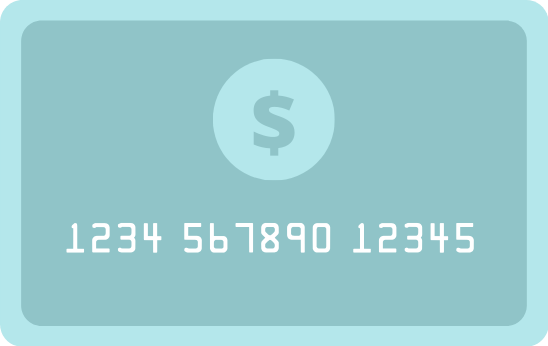
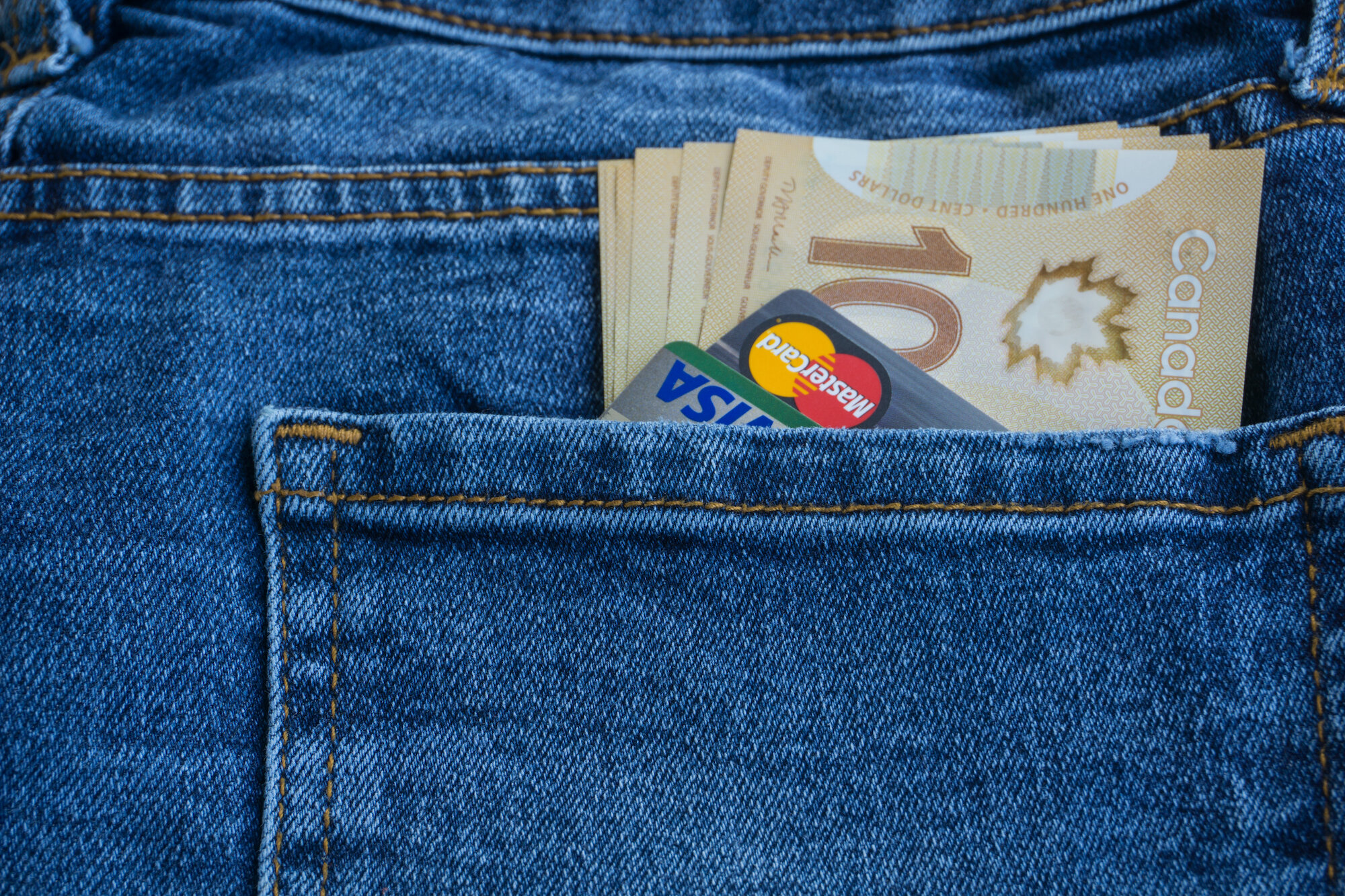


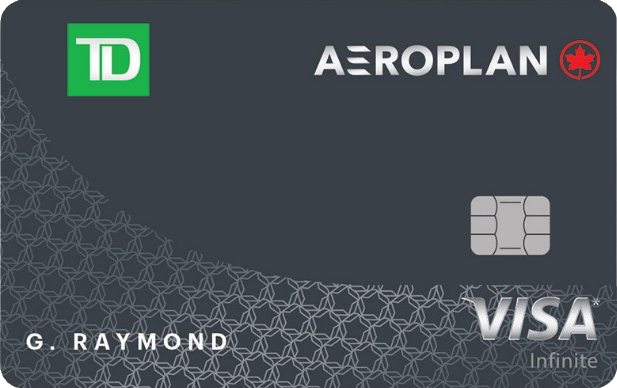



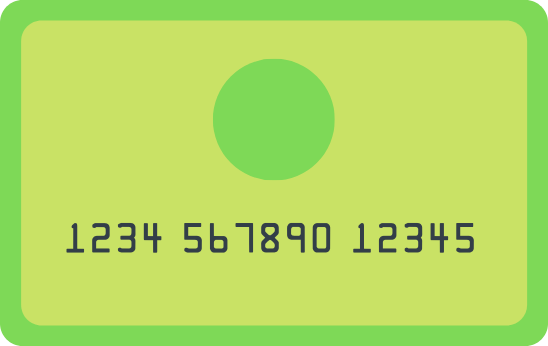
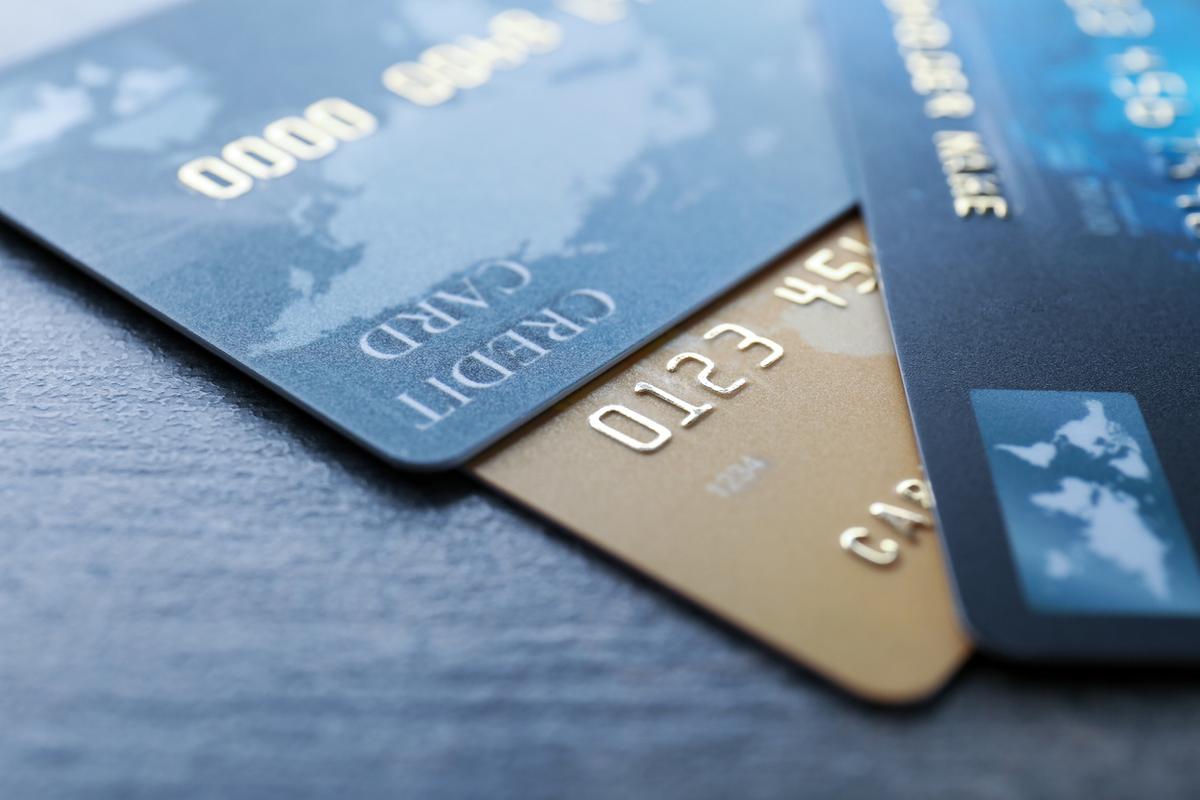
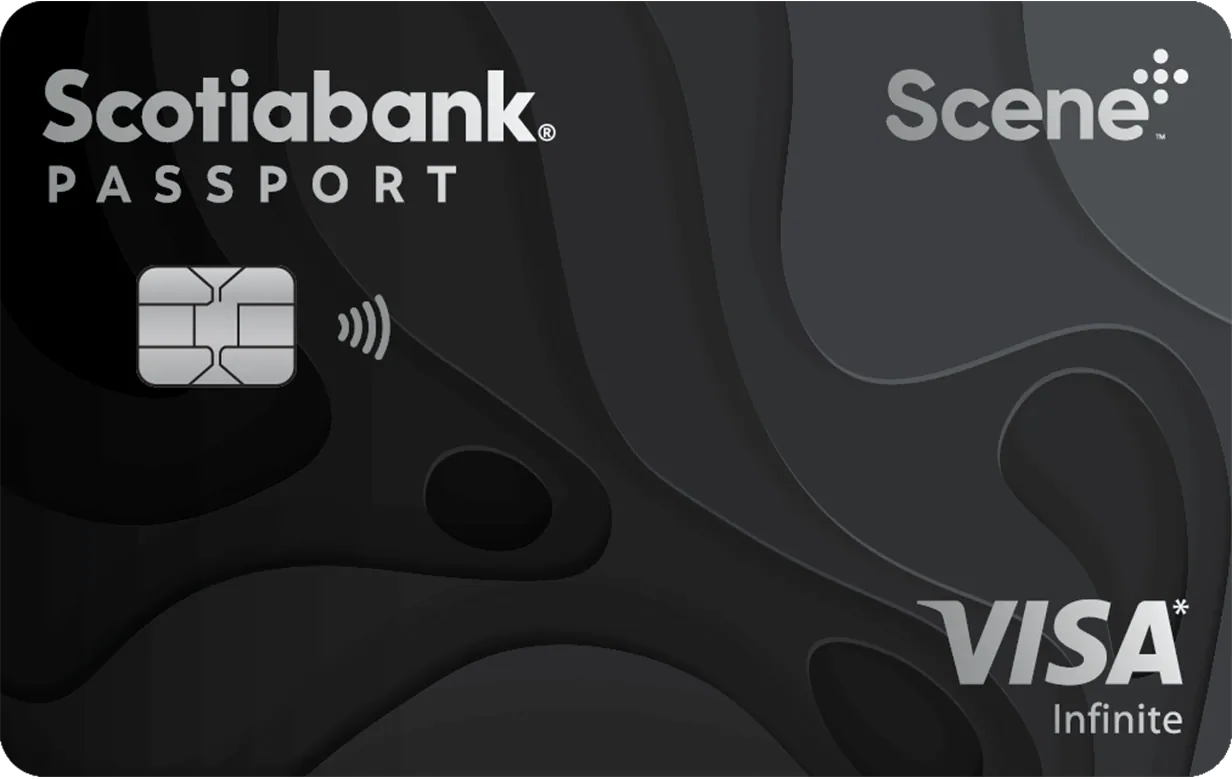



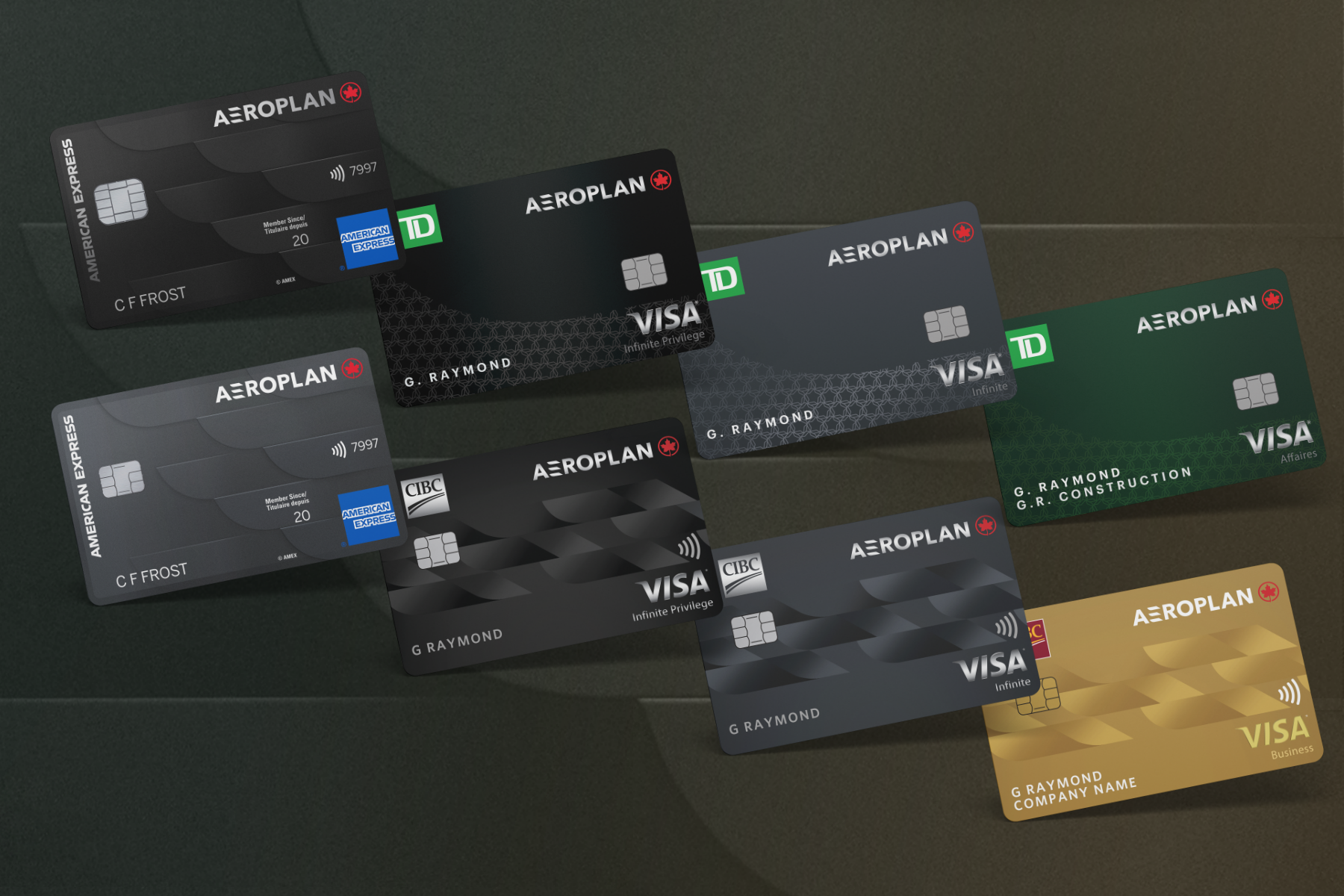



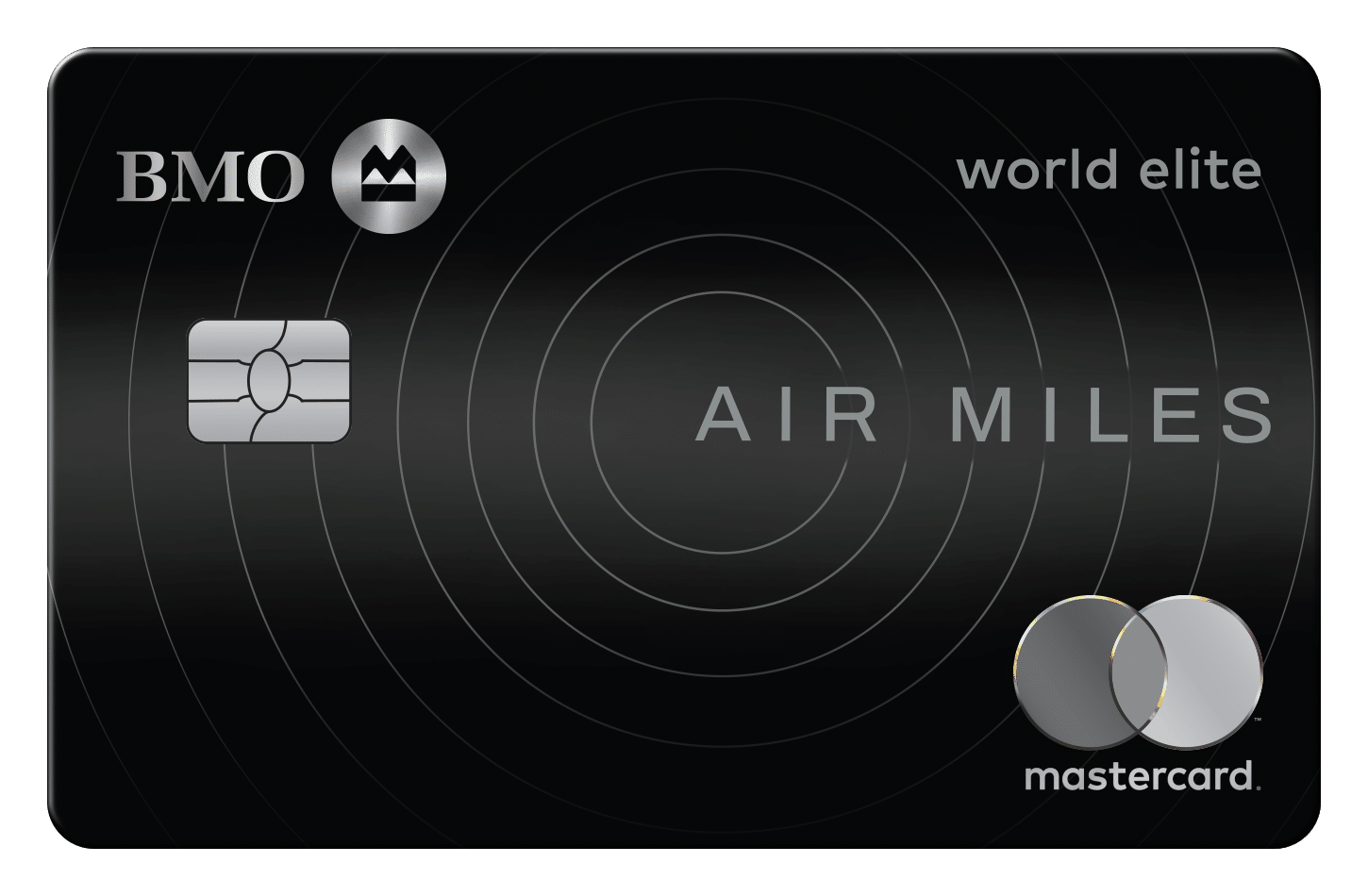
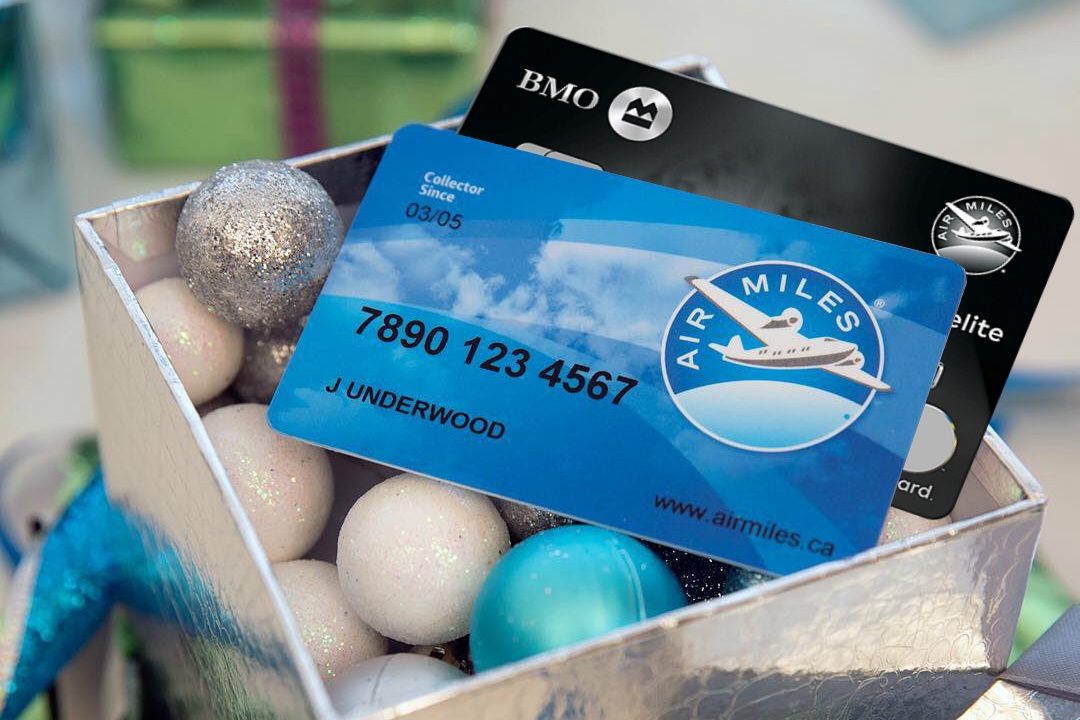


The Air Miles program used to be more valuable than it is now, particularly so when redeeming rewards. There was always extra fees when booking flights. However, accommodation & car rentals used to be the “sweet” spot. You simply redeemed points and there were never additional fees. You simply showed your confirmation number and checked in, or drove away. But now there are additional fees as well. But the merchandise rewards are still a “sweet” spot. Providing you can find merchandise that you would otherwise just buy, there are no additional costs besides points: there appears to be no sales tax, no shipping costs, nothing extra. For over 10 years, I’ve acquired all of my flagship cell phones, tablets, laptops or any other electronics that we are upgrading frequently anyway, simply with AirMiles Rewards and no extra fees.
You might wish to add a line or two to your paragraph entitled “Why use a credit card”. Indeed, ALWAYS paying the balance due by the due date is critical. But how to do that? You might want to suggest that a Line of Credit, whether you use it or not, usually costs nothing but the interest on balances, often includes a few perks, almost always charges far lower rates than credit cards, and is convenient for that one time a year when you might not be able to pay your full credit card balance by the due date, but will definitely be able to pay off your balance soon. I have found that an un-used, unsecured Line of Credit is a valuable tool to have when routing all your spending through a credit card(s) in order to maximize your rewards.
Thoughts on best card for big spend in non bonus categories? We are buying a business that should generate about $300K credit card spend each year. I see lots of US options, but very few good options in Canada and I need a Canadian one
Hey there, is there a list of US only cards? I dont easily find one. Thanks.
I don’t see evidence of the “welcome bonus of up to 115,000 MR points by applying through a refer-a-friend link” for the Amex platinum card on the Amex website or by following the prince of travel referral link…
I need a non-Amex card to backup my platinum and reserve cards for places that don’t take Amex. Don’t mind an AF but I also don’t want another $600 card (unless it’s really, really worth it). Any suggestions? I can’t seem to decide based on this list!
For keeping long-term, I’d go with the RBC Avion Visa Infinite (because Avion points are valuable!). That, or the TD Aeroplan Visa Infinite in order to keep earning Aeroplan on non-Amex transactions.
Thanks for your reply! How are Avion points valuable? Even transferring to BA I’ve found flights difficult to find or excessive taxes and fees.
Thanks for your reply! How are Avion points valuable? Even transferring to BA I’ve found flights difficult to find or excessive taxes and fees.
It depends on the airline for sure. Starting in a country that blocks excessive fees helps, as well as choosing airlines outside of British Airways.
Regarding the CIBC Aeroplan Visa Infinite card, is the Buddy Pass still convertible to 30,000 Aeroplan points as per this article? This article says that it was updated on February 1, 2022, however I have read in many places that the conversion opportunity ended in November 2021.
Reading this over it looks like the optimal time to cancel is somewhere within 18 months of opening it. The first year to collect the welcome bonuses and an additional ~6 months for optimal credit score + maintaining a good relationship. Is that right?
If you cancel your card after 6 months and before 1 year, will your credit store be affected?
– canadian resident
Not in a major way, as long as you’ve paid your bills on time and kept a reasonable utilization, although it simply won’t be as good as it could be if you kept the card for longer.
Hi Ricky or Josh or someone else from Prince of Travel team, I am undergrad student and I don’t own any business but i have sold things on Facebook market place. And I definitely have items I can list on Ebay 😉 Do you think I can still be eligible for the Amex biz platinum card offer if I do this? Thanks in advance
P.S I am beginner to the world of points but I’d like to dive in head first and feel confident thanks to your you tube channel, Ricky <3 Thank you!
Assuming your credit history is otherwise good, you should have no trouble getting approved! Put your own name as the business name, since you’re operating as a sole proprietorship.